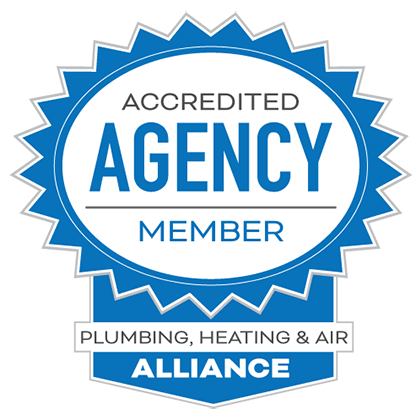SEO is not a one-size-fits-all proposition. One of the most significant distinctions between a website’s ability to optimize quickly is its age. Old websites tend to optimize more rapidly than their newer counterparts.
Why? Because having been on the internet for years (decades in some cases), Google has indexed the website and noted its consistent presence. Therefore, even non-optimized websites with an indexed domain hold value for future plumbing SEO services.
In contrast, brand new plumbing websites take longer to optimize. Since there is no record of their existence on the internet (because it ceased to exist), Google won’t automatically trust it, even if it’s well optimized.
Web admins can’t accelerate tenure without producing an excessive amount of high-quality links, something that is almost impossible to accomplish for a local plumber and may cause penalization. Let’s discuss optimizing old vs. new websites:
Old Websites
Older sites are the easiest to optimize, and they can quickly achieve success through optimization. For example, if your plumbing company has been around since, let’s say, 1999, and has had a cheap website up since, let’s say, 2003, it has a digital tenure of 16 years.
Even if the site was pure trash from an SEO & content standpoint, the representation of your business on a legitimate domain name still holds value.
Once a professional SEO company optimizes your site correctly, you could see significant improvements in as little as 3-4 weeks. The only scenario in which old websites are non-favorable is when they’ve been manually penalized by Google.
However, your site probably does not have a penalty unless you intentionally built spammy links, violating Google’s guidelines.
Let’s go ahead and assume that’s not the case with your company. Here’s why age helps optimization:
Authority
Old domains possess inherent authority because Google indexed these addresses years and sometimes decades earlier. Thus, even if a website failed to live up to proper SEO, its existence within Google’s index is enough to establish a baseline of authority.
Tenure
The age (tenure) of the exact web address influences its ability to optimize. You can check a domain’s tenure by using whois.com, which lists the initial registration date of the website. You can also view its visual history by visiting archive.org.
Trust
Google’s top priority is giving its users trusted search results. So it’s common sense why aged domains would be safer for Google to publish than brand new ones. After all, Google already evaluated every site in its index.
New Websites
Many plumbers don’t have the luxury of optimizing an old website because they are a brand new business or never purchased a domain name. In either case, SEO is far more frustrating and takes longer to work. Still, newer plumbing companies shouldn’t let that discourage them from performing SEO.
There are methods to supplement traffic while you wait the 6+ months for your SEO to kick in properly.
You can target long-tail keywords and low-competition keyphrases to get your website indexed faster. Depending on your company’s location, you may have an easier time ranking for obscure keywords. For example, let’s say you service a city with a population of under 5,000 people.
You can probably rank for a phrase like sump pump repair in city, st sooner than six months in such a scenario. But, of course, more competitive keywords like plumber near me, will take at least six months, if not longer.
You can find a keyword’s difficulty using MOZ, SEMRush, or another similar SEO tool. However, since websites aren’t usually dedicated to sump pump repair, having high-quality internal pages that focus on that topic can rank websites (even very new ones) quickly.
So here are some things to focus on with a new website:
Freshness
Sites with limited tenure should frequently publish new content to build authority on Google. Conversely, sites with little to no content have a more challenging time establishing trust and topical authority within Google’s index. Consider adding new service pages and blog posts each week.
Reputation
Another way to speed up SEO for new websites is by associating your website with a reputable business. You can do so by enhancing your business reputation on online directories like Google My Business, Yelp, and plumbing-related directories.
Supplementation
Try driving traffic to your website from other sources besides organic search. For example, invest in Facebook Ads, share posts on social media, and start an email campaign with a tool like MailChimp or SendinBlue. Then, as more traffic comes through your website, Google may index pages faster.
Meeting in the Middle
Once a new website reaches a certain level of authority, it can compete with older and more previously established domains. The old website’s inherent advantage goes away once the new one sets itself on the same level.
The goal for new plumbing companies is to expedite the process as much as possible. Once you’ve established authority, whether, with a new or old website, you should focus on the following principles to sustain your search rankings.
Content Marketing
As new keywords emerge, it’s your job to produce content that meets your consumer’s needs. For example, a page about cast iron drain repair helps signal specific service offerings to search engines and builds trust among present and future customers.
Likewise, showcasing a recent sump pump repair job is worth sharing on your service and city pages and may increase engagement for your website.
On-Page SEO
It is critical to keep up with Google’s latest algorithm changes and adjust your on-page SEO as necessary. For example, Google recently started using passage indexing which splits sections of your pages and posts into individualized results.
With this in mind, it’s a bright idea to break your content into different sections using headers and tables of contents. You should also build internal links for each new page you publish. For instance, your slab leak repair page should link to your common slab leak causes blog post.
Off-Page SEO
Never stop promoting your brand and company on as many platforms as possible. For example, if a new social media platform emerges or a new plumbing directory, make sure you list your business information on the new website.
Not only can they serve as nofollow links, but they can help your company reach as many eyes as possible. In addition, make sure to continuously generate reviews for your business on as many review platforms as possible.
Podcast: Play in new window | Download
Subscribe: RSS






